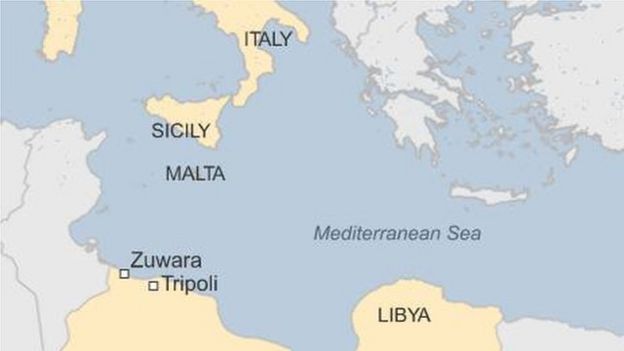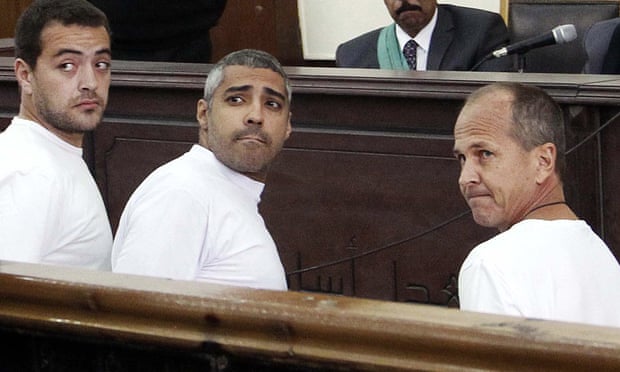By Tyler Campbell
Impunity Watch Reporter, Africa
TRIPOLI, Libya – Two Hundred people are feared dead off the coast of Libya this week after a refugee boat sank while taking the perilous journey across the Mediterranean Sea toward Italy. This was the second refugee boat to sink this last week. Another boat, also full of refugees had gone down the day before. This is one of the most heavily traveled refugee routes out of Africa toward Europe and it has seen an increase in the number of refugees that never make it when compared to last year. According to the International Organization for Migration approximately 2,373 people have died trying to reach Europe this year. This is compared to the 3,281 people that died all of last year trying to make the same trip.

The first boat that capsized was a smaller fishing vessel believed to be carrying 100 people. The second larger boat was said to be carrying nearly 400 passengers when it sank the next day. Some sources reported that people were trapped in the cargo hold of the larger vessel when it went down on Thursday.
As of August 29th, 105 people had been declared dead with hundreds of others still missing. Rescue efforts have been working since the boats went down and have successfully recovered 200 people. Heading the rescue efforts is Libya’s Red Crescent Society, a disaster relief group in Zuwara. The LRCS is an organization that relies primarily on volunteers for its mission. Many of these volunteers are not trained or prepared to handle human remains. However, with little to no involvement from the Liberian government they have had to head the continuing rescue mission of saving these refugees.
The city of Zuwara is a popular port for refugee boats to begin the trip toward Italy. It is one of Libya’s most northern cities and lies just over 300 miles away from the tip of Italy. Separating these two is the unpredictable Mediterranean Sea. The unseaworthy and overcrowded boats along with this dangerous section of the Sea make it an extremely perilous journey for refugees.
Even though it is a dangerous trip the number of people willing to take it has continued to climb. In the first nine months of this year 300,000 people had attempted to cross the Mediterranean into Europe. The total number of people who attempted to cross in 2014 was only 219,000.
The reason for the increasing number of refugees is long and growing. The main drivers are the escape from war, persecution and poverty. The three nations with ties to the greatest number of refugees fleeing to this section of the Mediterranean are Syria, Nigeria, and Eritrea.
For More Information, Please See:
Al Jazeera – About 200 feared dead in Libya refugee boat disaster – 29 August 2015
CNN – Dozens of Migrants die as boat capsize off Libya – 29 August 2015
BBC News – Migrant crisis: Libya boats sink off Zuwara carrying hundreds – 28 August 2015
CNN – Tide of Death: Migrants’ bodies wash ashore in Libya – 27 August 2015



